I told you last Friday that we would have more from Natalie Portman’s Elle UK November cover profile, and here we go. Natalie covers the November issue to promote Thor: The Dark World, and the interview was conducted by Tom Hiddleston. We don’t have many quotes from Tom about Natalie (and I can’t wait), but there is this one, about Natalie slapping him in Thor: “Natalie has a neat right hook. I know this because the first time we shared screen time, she punched me in the face.” And of course, we do have lots of new quotes from Natalie. Here you go:
Natalie on betrayal:
‘There’s a line [in her movie Closer, starring Jude Law whose character betrayed her] that still affects me to this day, which is when my character says, “It’s always a choice,” because Jude is saying, “I couldn’t help myself.” That’s what people always say, but it is a choice, all the time.’Natalie on falling in and out of love on a whim:
‘I see it a lot – this romantic view of the world where you fall in and out of love on a whim. It ignores the depth of trying to know another human being and respect them and love them, and puts in its place the excitement of an immediate intimacy. But really knowing some? That is such an opportunity.’Natalie on motherhood:
‘I love being a mum, but it’s much more intensive work than being an actress – going to work feels like you’ve got a day off. Not that I want a day off from being a mum, it’s just perhaps I had this impression before that mums don’t work. But they work more than anyone.’Natalie on feminism:
‘I want every version of a woman and a man to be possible. I want women and men to be able to be full-time parents or full-time working people or any combination of the two. I want both to be able to do whatever they want sexually without being called names. I want them to be allowed to be weak and strong and happy and sad – human, basically. The fallacy in Hollywood is that if you’re making a “feminist” story, the woman kicks ass and wins. That’s not feminist, that’s macho. A movie about a weak, vulnerable woman can be feminist if it shows a real person that we can empathize with.’Natalie on Dirty Dancing:
‘To this day, it’s the movie that I’ve seen most in my life. “I carried a watermelon”… I can’t talk about it too much, or I’ll start getting teary. There are other movies I love, but no other movie that I have watched over and over.’Natalie on social media:
‘Lives are so documented, because it’s so easy with iPhones. I wonder how it’ll affect a whole generation who grow up that way. It had an effect on me – I became more conscious of how I walked, talked and looked because I was constantly seeing myself.’Natalie on punching Tom Hiddleston in the face:
‘Oh my god: it was so good!’
I agree with her feminism up to a certain point. I like this especially: “I want them to be allowed to be weak and strong and happy and sad – human, basically.” That’s exactly right – it’s not “anti-feminist” to have human failings or vulnerabilities or what have you. But I’m not sure about this: “A movie about a weak, vulnerable woman can be feminist if it shows a real person that we can empathize with.” My mind isn’t working as well as it should this morning, so help me nit-pick that one. If I empathize with a character who is weak, who is superficial and nasty to other people and gross in general, then that’s feminism? I disagree. Millions of little girls relate to Bella in Twilight, but that doesn’t make Twilight a “feminist” film/book.
Photos courtesy of WENN, cover courtesy of Elle UK.

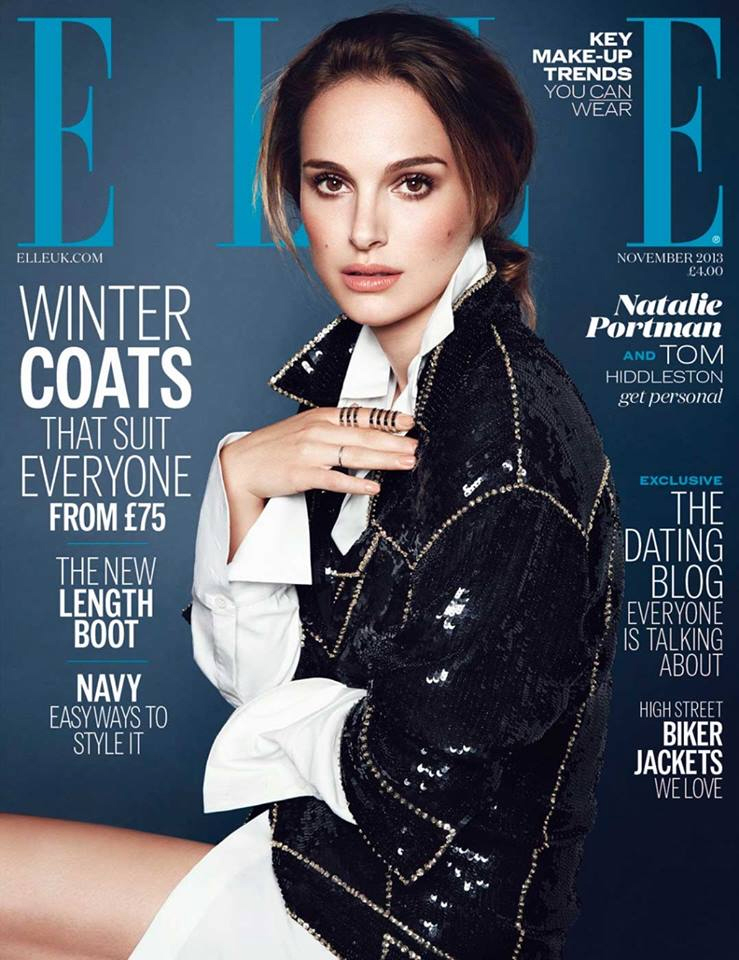
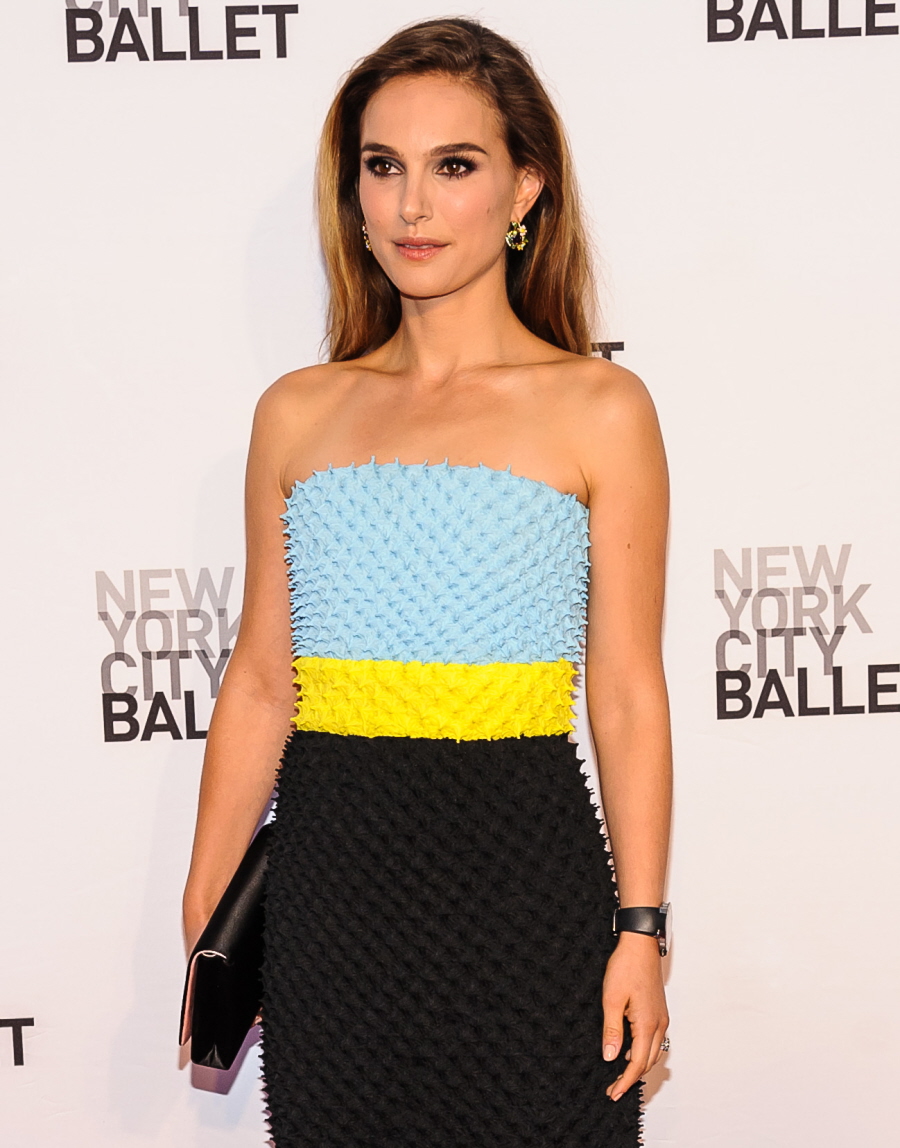
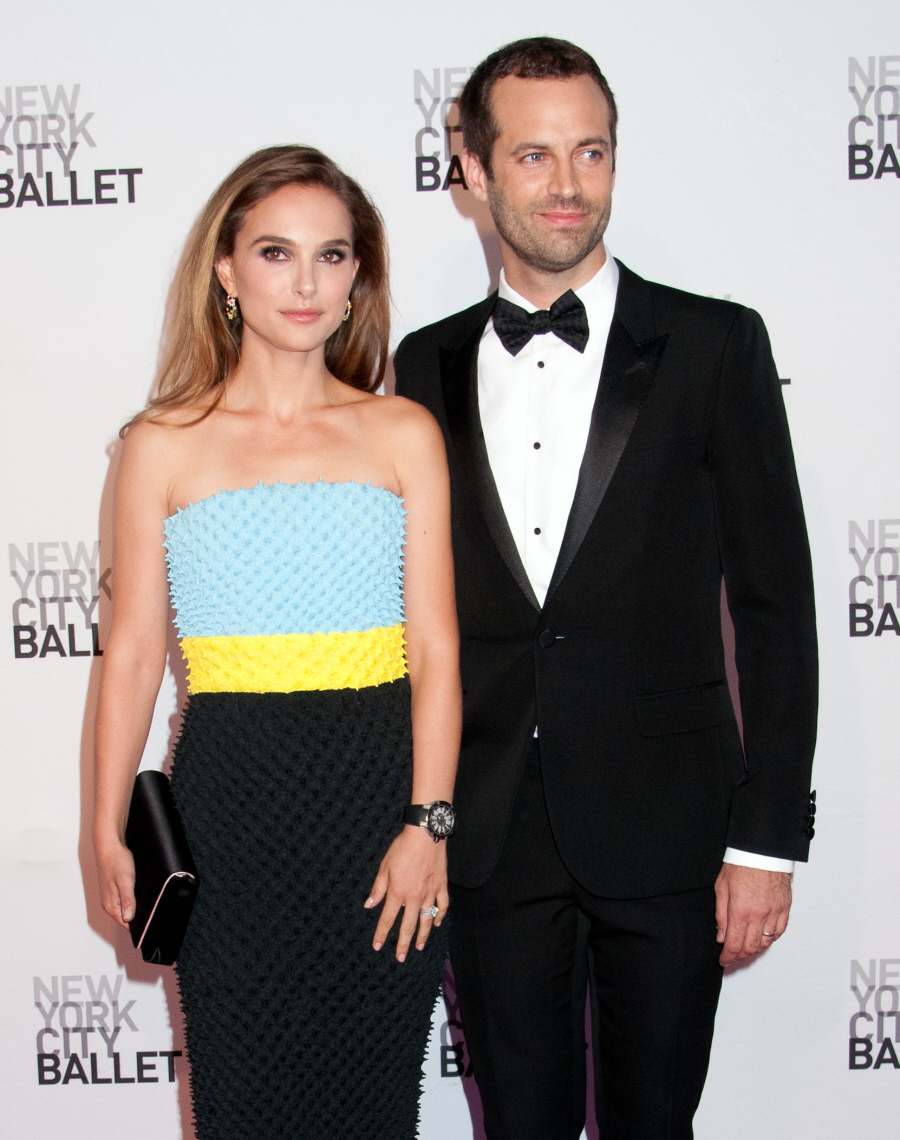
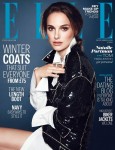

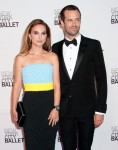











Natalie Portman, the Polanski apologist who sees fit to compare eating meat to rape, discussing feminism. Gag.
Methinks that someone is trying to cover for the fact that the last time she played a strong woman, she was eleven. And that plenty of her movies are just heinous shout outs to cavemen types.
Portman may make more money playing weak women than not. I get her two dimensional acting pretty much forces her to just play the little girl. And that her career is essentially based on her tiny, childlike appearance (which would make it hard for her to play an actualized, adult woman).Still, limited skills are no reason to say ‘my films can still be feminist, even though my characters tend to be misogynist stereotypes.’
This is on point.
@Amelia: Woody Allen married his son’s sister, one of Mia Farrows adopted daughter. Apologists say its not that bad because she isn’t biologically his child and he never formally adopted her.
all I get from her comments and beliefs is that she is clearly able to apply critical thinking and logic to every aspect of her life, that entails gathering real facts and distinguishing between what is the logical decision to be made on the situation and what is a result of your environment and feelings, clearly honed during her psychology major at harvard.
I want both to be able to do whatever they want sexually without being called names.
So I guess it’s wrong to call Roman Polanski and Woody Allen child molesting pervs, right Natalie?
Amen!
Hang about, hang about – what’s this about Woody Allen?
I know Polanksi is a ****ing c*** and a pathetic excuse for a human being, but I’ve never heard anything about WA. Do tell.
He had an affair with his adopted daughter and later married her. His MUCH YOUNGER adopted daughter.
re: Woody Allen sick piggery.
Mia Farrow had a romance with him for years, which started in/around 1980. She had children, both biological and adopted, from a previous marriage to Andre Previn, which ended in 1979. One of the kids they adopted (from Korea, around 1978) was a young girl named Soon-Yi Previn (whose DOB was unknown, and a bone scan showed her age to be about 5-7 at adoption). In 1992, Mia Farrow found nude photos Woody Allen had taken of Soon Yi (who was reportedly about 20 at the time), and Farrow ended her relationship with Allen. It has been reported that Allen admitted to having a sexual relationship with Soon-Yi, the adopted daughter of Mia Farrow, beginning in 1991. Woody Allen and Soon-Yi married in 1997.
He was also accused (by Mia Farrow during a very public custody battle after the discovery of the pics)of molesting one of his own adopted (with Farrow) daughters in the past, who was age 7 at the time, but the investigation was inconclusive (which happens OFTEN in molestation cases). Mia Farrow was awarded custody of the children that she and Allen adopted together and Allen was denied visitation of the child he was alleged to have molested, and was ordered supervised visitation of the other child he had adopted with Farrow. Their biological child was 14 at the time, and he chose not to see his father. In 1993, although the Connecticut State DA had probable cause to prosecute Allen, the DA decided against prosecution to save the child the trauma of testifying at trial/appearing in court.
Not sure if this is the entirety of the alleged grossness of Woody Allen, or just a quick synopsis, as I have never met the man, THANK HEAVEN.
*standing O* bravo (or bravA!) well said & 100% on point.
I think she means women should be allowed to be weak and vulnerable on film without being called anti-feminist but why only women and not men too?
I get what she’s saying about weak and vulnerable female characters being feminist. Flawed characters are an essential part of good filmmaking, feminist or not. There’s no reason that characters in tough situations should be off limits to feminist creators.
I don’t know what it has to do with Bella? Bella is not very real at all, and that was the qualifier on her statement as much as empathy. And she also said “can be”, not “always is”.
I think empathy with the conditions that might lead to a woman being weak and vulnerable is feminist. Acknowledging that women are generally not as physically strong, have the limitations of pregnancy etc, is part of the real female condition. Kickass-ing female action heroes are fun, but does mean subscribing to a macho (masculinist) norm. Bad character traits are a whole different matter.
But the quote sound like she’s combining weak and vulnerable as natural companions. Can’t a strong woman be vulnerable?
Yes, showing a woman as weak and vulnerable can be a valid part of the story but I guess it may seem like anti-feminist because we see so much of it all the damn time and as the woman’s default setting, not simply a part of who she might be.
Meg Ryan’s character in Courage Under Fire was strong yet vulnerable – great post 🙂
There’s also a conflation going on in Portman’s comments and the responses here that conflates “flawed” with “weak.” The Courage Under Fire example suggests flawed, yet when we talk about that kind of character and she’s female, we articulate it as weak. Weak and vulnerable doesn’t interest me. Flawed does. I’m thinking of characters like Adriana from The Sopranos, for example. A fascinating character, flawed, and vulnerable, but never weak.
That’s what I was thinking. At first I wasn’t sure if I got her wrong as I’m not a native speaker. But she seems to equal being weak and showing weakness. I’m a psychotherapist and every day I see people, male and female, who show vulnerability. Among them: the strongest people I’ve ever met.
From my point of view she often sounds as if she picked up a smattering of psychology but never really got to the bottom of it (learning facts but not understanding their connection…). I guess she will always be pretentious to me.
“A movie about a weak, vulnerable woman can be feminist if it shows a real person that we can empathize with.”
_______________________________
My mind isn’t working as well as it should this morning, so help me nit-pick that one. If I empathize with a character who is weak, who is superficial and nasty to other people and gross in general, then that’s feminism?
_______________________________
Where does she say anything about “superficial” or “nasty to other people” ??!! Being weak doesn’t mean you are superficial or nasty? Huh?!
Anyway, I can disagree about her stance on Polanski, and still think that what she said HERE is quite valid. People should be aloud to be who they are, and sometimes we are weak, sometimes we fail.
It sounds like she’s referencing Virginia Woolf in ‘A Room of One’s Own’. Or maybe the Bechdel Test.
I was shocked to learn recently that not only had my husband never read ‘A Room of One’s Own’, but that he had never even heard of it!!! I mean come on. He considers himself to be well read, but he hadn’t even heard of it. He also had never heard of Seneca Falls….sigh.
“A movie about a weak, vulnerable woman can be feminist if it shows a real person that we can empathize with”
You have to link this phrase with the whole passage about feminism. You cannot cut a sentence out of the context and then try to guess what Natalie means by that. She never said that “a character who is weak, who is superficial and nasty to other people and gross in general, then that’s feminism”. She said: “[..] I want them to be allowed to be weak and strong and happy and sad – human, basically. The fallacy in Hollywood is that if you’re making a “feminist” story, the woman kicks ass and wins. That’s not feminist, that’s macho. A movie about a weak, vulnerable woman can be feminist if it shows a real person that we can empathize with”. Natalie wants people to be human. She wants them to be weak, strong, happy and sad etc. And if you can empathize with being “weak and vulnerable”, you are a feminist because you admit and accept the fact you are a human being. That is true strenght and feminism in Natalies eyes.
I don’t want to live in Natalie’s vision if a eorld where women are forced to wear coverings over their head and entire body because a weak man might be tempted and if said weak man gets tempted and rapes her than she gets punished for it. No thank you. Yes Natalie is a rapists apologist so no wonder she thinks this way.
I can understand the comment and even agree to the premise behind it to an extent. For me, it cancels out the main point she tries to make when you take into account her history. *Laowai* hit it dead on the money with her comment. The one thing I laughed at and appreciated was her comment about Mums working.
Ugggh… so “kicking ass” and “winning” are inherently male? or “Macho”
Yes, good filmmaking includes characters who are empathetic, whole people, not stereotypes, but women kick ass and win a hell of a lot more in the real world than is EVER depicted on screen, and that is a problem.
I can appreciate that it is obnoxious that ‘feminist’ characters are inevitably conflated with ‘macho’ characters (ie, tough-talkin’, hard-swingin’, ‘don’t never need no relationship’ types who are half-caricature, half-character).
But, of course, it takes quite a leap to say that it is obnoxious to conflate feminist characters with macho ones, and to argue that the wiltingly frail, misogynistic trope characters that Portman generally plays are a legitimate ‘feminist’ alternative to a ‘macho woman’. You could just say ‘strong is not macho…an actualized woman does not have to brawl to prove herself.’
Someone who got into an Ivy League school on the basis of their brains might appreciate the rather unsubtle distinction, I think.
@Runs With Sci…: Yes!, this plus 1,000,000.
I actually agree with her. I’m not sure where the “If I empathize with a character who is weak, who is superficial and nasty to other people and gross in general, then that’s feminism?” thing in the article comes from – she never said anything about people being superficial or nasty. And besides, there’s a big difference between empathy and support – one can empathise with a character who is “gross” without supporting their actions. I mean, I can look at the assholish behaviour of people I know and care about, and understand why they did it, and know where it’s coming from, and empathise with their feelings, and still recognise that their behaviour was wrong, you know?
What she’s saying, as I read it, is that it’s not anti-feminist to have women characters who are weak or vulnerable, because women (and men) sometimes are weak and vulnerable in reality. Feminism should mean we encompass the reality of everything women (and men) can be, rather than restricting them on the grounds of gender – it’s only anti feminist to have weak, vulnerable female characters if they are the ONLY female characters presented.
A well-written, well-rounded character is exactly that, irrespective of gender, and can be kick-ass AND vulnerable AND weak and strong, depending on circumstance. I mean, Sarah Connor in T2 is as kick-ass as they come, and she has her moments of extreme weakness too…
+100,000,000! christ the rest of you ppl are dense…
Waif
No need to insult because you disagree. Shame an opinion can’t be stated without going on the offense to those who do not share your opinion.
THIS.
It’s not so hard to get, people! But it seems most aren’t getting it….
I don’t think she expressed herself well on the point I think she was trying to make. Anyways, in the real Hollywood world, it’s all about the money or allowing ‘famous’ directors/producers to do whatever portraying they are gonna go. If there was a study conducted on how women are portrayed in film (good, bad, empowered, leaders, victim etc etc etc) – it wouldn’t surprised me that it’s totally far off reality etc.
Ps: Is it me or does her nose look strange in these photos? Over make up contouring or a nose job?
I agree 100 percent on the nose thing. I keep looking at her face, and it just doesn’t seem like, well, hers.
Didn’t they bring back All My Children in some form? I guess she can say that she held on to some of the DNA from that bear she conquered in the ’80s had the specimen stored in some kind of underground rejuvenation centre known only by the highest calibre smugglers, used it for a ‘procedure’ and voila–youthful declarations! Silver is going to be upset. But Erica Kane is back in effect so watch out, um, Pine Valley, Pine Valley! I didn’t want to check, I had to remember it on my own. Ah, isn’t it a relief when you remember stuff on your own?
What I’m saying is she looks like a first draft of Susan Lucci now.
I wish she had provided an example of a “weak, vulnerable” and yet still feminist character. I feel like people will use that to defend Bella Swan, who was just crappily written.
I guess one example would be anyone from Jane Austen, right? Not that her collection of heroines are weak, necessarily, or even vulnerable, but they’re in weakened and vulnerable circumstances due to the restrictive society in which they lived. Austen stories are often about women left in straitened, if not outright dire, circumstances who are vulnerable to society if nothing else.
Or perhaps the protagonist in The Yellow Wallpaper, also a victim of a rigid society that deliberately and systemically disadvantaged women and their personhood.
Maybe she was thinking of her movie, Jane Got a Gun, about a frontier wife who has to deal with her husband’s sh-tty life choices.
The thing is, I think you have to go back in time for those types of characters. Because in the present, unless they’re weakened by some kind of trauma (like Meg Ryan’s character in Courage Under Fire), there’s really no excuse for lack of agency in female characters.
Edit: And in CUF, Meg Ryan wasn’t *weak*, she was just *weakened* by circumstances. That’s an important distinction I’m not sure Portman was making. Weakened doesn’t equal weak.
Yes, exactly!
*gives Algernon some flowers*
Thank you, Algernon. That is how I read it too. Bella from Twilight is definitely not a feminist, but women in Jane Austin’s books are.
I used to be a fan of Natalie Portman when I was a teenager, thought she was so lovely and smart, but then became turned off by her in the past few years (her Black Swan campaigning). But these quotes make me like her a little bit more again.
So, how often does Darren Aronofsky get to see his son Natalie?
Good gawd… She is as boring and vacuous as her gaze is.
“Weak” and “vulnerable” make me think of her character, Emelia, from ‘The Other Woman’. Certainly not “nasty” or “superficial” but very weak and very, very vulnerable.
I don’t disagree with her – if that weak, vulnerable character is the center and driving force of her own story, it can still be a feminist story.
This explains it better than I can: http://www.newstatesman.com/culture/2013/08/i-hate-strong-female-characters
THIS!
Why should “weak” and “vulnerable” be lumped together? I think these are completely different notions of human character. “Weak” is negative trait, but “vulnerable” is a matter-of-fact neutral trait. Any strong person can be vulnerable at certain stages of life. Life is hard, there is no need to sugar coat. But it is the strongest who rise from the ashes. There is no need to worship weak and ugly sides of some humans and present these as false feminism. However, a weakness can be forgiven in a person if he or she makes effort to overcome those weaknesses, those who are willing to fight deserve respect even if they are not the strongest. And life is not the olympic games, who needs to hold gold medal all the time?
I just saw Black Swan, and was so disgusted by it. It is basically a pornographic film. Natalie Portman is a porn actress in this movie. Some of the sex scenes actually grossed me out, too. I thought I would vomit. Portman, you are disgusting!